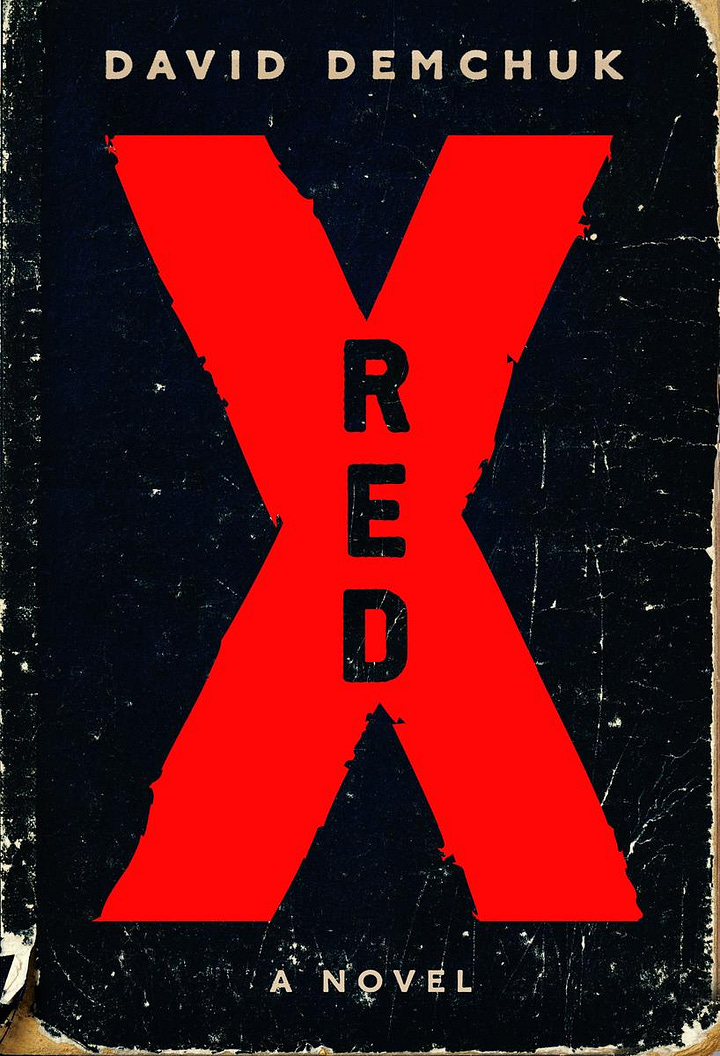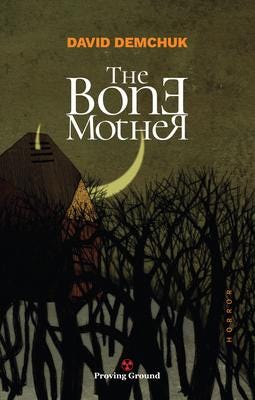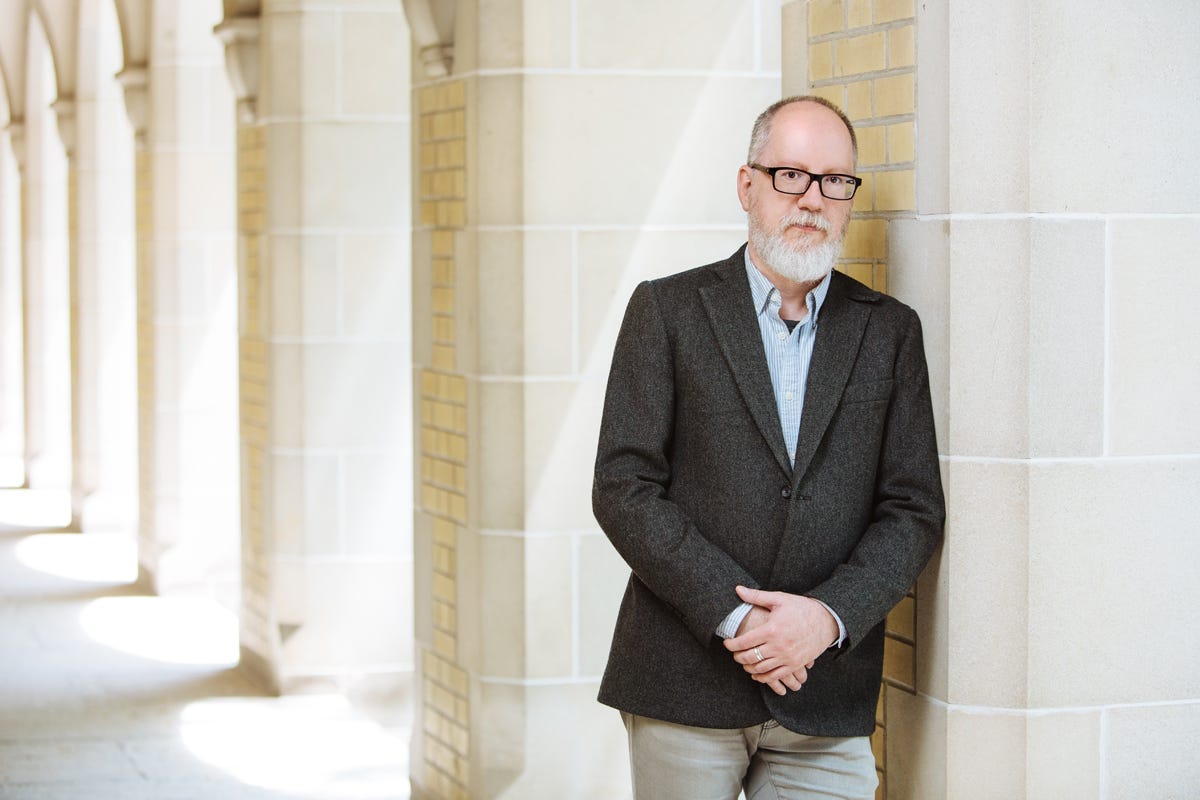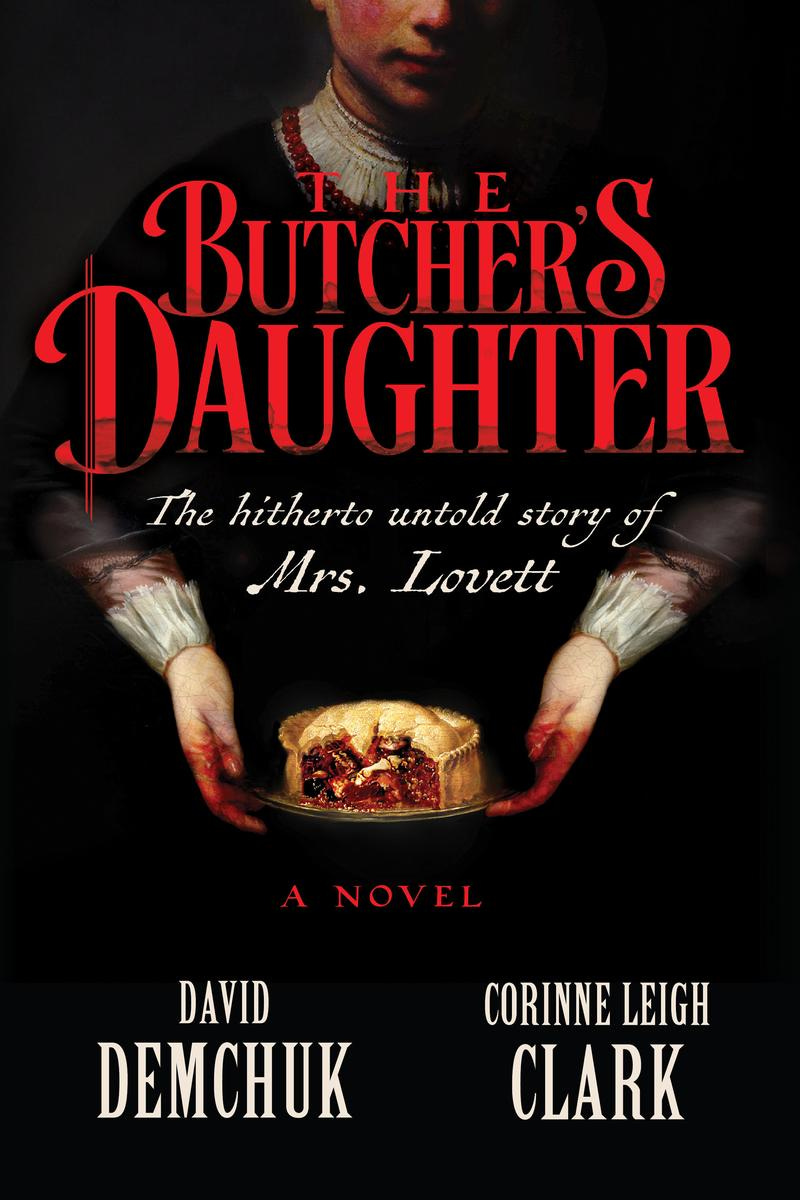David Demchuk has been writing for print, stage, digital and other media for more than 40 years. His debut horror novel The Bone Mother, published in 2017, was nominated for the Scotiabank Giller Prize, the Amazon First Novel Award, the Toronto Book Award, the Kobzar Book Award and a Shirley Jackson Award in the Best Novel category. It won the 2018 Sunburst Award for Excellence in Canadian Literature of the Fantastic in the Adult Fiction category. It was listed in the Globe and Mail's 100 best books of 2017, came in at #22 in the National Post's top 99 books of the year and became a #1 bestseller on Amazon.ca. RED X was published by Strange Light in August 2021. It was listed as a Rakuten Kobo Top 20 of 2021 selection, a CBC Books pick for Best Canadian fiction of 2021, and a New York Public Library Best Book of 2021—one of just three Canadian novels on the list. His new novel The Butcher’s Daughter, with debut author Corinne Leigh Clark, will be published by Soho Press (US) and Titan Books (UK) in May 2025. David’s writing has appeared in numerous anthologies as well as Toronto Life, Hazlitt, Winnipeg Review, Chronotope, Unfortunately, JAKE, Weird Horror and Andrei Codrescu's Exquisite Corpse. After many years in Toronto, David lives with his husband in an old house by the sea in St. John’s, Newfoundland.
“…a master of bowel-loosening terror…” - The Globe and Mail
Describe your writing space. What do you love about it?
My home office is on the second floor of a 130-year-old house in downtown St. John’s, rebuilt shortly after the Great Fire that took out most of the city. It has plaster walls, a high ceiling and original mouldings, my big red couch that is large enough to nap on, and a lovely old fireplace that would likely cause the next Great Fire if I tried to use it. There are some family mementos and seaside gothic elements that I find inspirational. And, of course, most of my books are in this room, so they are always close at hand when I’m writing.
How important is it to have ‘a room of one’s own’?
It’s not always possible to have a room dedicated to writing, so I am very grateful for it. I was afraid when I moved here that I wouldn’t able to write in this room (it has been known to happen) so I’ve been hugely relieved and more productive than I expected.
What is your writing practice like?
I am not a ‘write XXXX words a day’ person, or even a ‘write every day’ person. When I am working on a project I am generally fairly gentle with myself: four sessions a week, 250 words a session at the least, ten minutes of revision as a warm-up and then write till I feel like I’m done. That way, even if things are going slowly, I’m writing 1000 good words a week—often more—and can pull together a novel-length draft in a little over a year. Then the real work begins.
What is your creative process like?
I seldom start with an outline though I usually have a general idea of where I’m starting and where I’m going. In the early days I spend a lot of time working on voice and form, as well as conducting initial research if needed. Once I think I have something workable, I give myself 5000 words to determine whether the project is viable or if something needs to change. In those early pages, I try to give my characters everything they need (sometimes too much!) to go the distance and not just peter out. I tend to research as I go, and try to let what I learn inform the work—and occasionally derail it—to give me the level of verisimilitude I need to ground whatever mayhem I’ve envisioned.
How do you manage writing with other demands on your time?
That’s assuming I do! I have a day job that can be draining, so I try to make sure that I have a restful break between the end of the work day and the start of my writing session. I write in the late evening, usually starting around 10 p.m. and finishing around 1 a.m. which means that I’m exhausted all the time. I also limit my reading and media watching when I’m working on a draft, which helps me focus and concentrate.
What has influenced you most as a writer?
I am something of a formalist, and enjoy experimenting with structure and presentation while (fingers crossed) still telling an accessible and compelling story. I love books as objects, and am always considering the properties of a book as I write. As a child, I was fascinated by books that played with perception, and that continues to the present day. Lorrie Moore’s Anagrams was a revelation for me, as was The Unfortunates, by B.S. Johnson, Italo Calvino’s The Castle of Crossed Destinies, The Dictionary of the Khazars by Milorad Pavic, Riddley Walker by Russell Hoban and, unsurprisingly, Mark Z. Danielewski’s House of Leaves.
“Also, it has to be said: I am a very anxious person, and often use my work to confront my own private fears. They act as a kind of palimpsest that perhaps only I can detect.”
Do you want each book to stand on its own, or are you trying to build a body of work with connections between each book?
I think many writers hold an unanswerable question close to their hearts, and spend their whole lives writing different paths toward that question, hoping and failing to reach the answer. I know that’s true for me. If there is a connection between my books, you’ll find it there.


Best advice you’ve ever been given.
Let yourself fail. Let yourself succeed.
What was a transformative book for you in your life?
I had a complex and difficult relationship with my mother, but one thing I will always be grateful for is that she let me read whatever I wanted, from any part of the library. When I was much too young, I read a book called The Other by Thomas Tryon. It was a sensation when it was published in 1971, and I must have read it within the year it came out. The framing device went over my head, but the story itself, about twin boys close to my age, was gripping and shocking, with a sharp stark twist that stunned and devastated me. My signed first edition is one of my most treasured possessions. (Pardon the pun.)
Who are your favourite writers writing today?
Oh wow, so many: Kelly Link, Ann Patchett, Lorrie Moore, Anne Tyler, Louise Erdrich, Annie Dillard (she has famously retired, but I live in hope). Kazuo Ishiguro, George Saunders, Brandon Taylor, Michel Faber, Brian Evenson, Kate Atkinson, Alan Hollinghurst, Nicola Barker, Eleanor Catton, Sarah Waters, Max Porter, Carmen Maria Machado, Andrew Michael Hurley, Anthony Oliveira.
What books are you currently loving?
This past year I was fortunate enough to get an early look at Elliott Gish’s Grey Dog, Jordan Shiveley’s Hot Singles in Your Area, J.R. McConvey’s False Bodies and Dengue Boy by Michel Nieva. All excellent books. I am currently reading Sarah Gailey’s new book Spread Me and it is hair-raising from the very first page.
If you were a bookseller what 5 books would you hand-sell to readers and why?
Toni Morrison’s Beloved
Kazuo Ishiguro’s Never Let Me Go
The Little Stranger by Sarah Waters
The Loney by Andrew Michael Hurley
In the Dream House by Carmen Maria Machado.
Each an exceptional example of genre literature in the fullest sense of the words.
What advice do you have for writers?
Don’t stop now.
Thank you David.
The Butcher's Daughter: The Hitherto Untold Story of Mrs. Lovett was released May 6, 2025.
The story of the vengeful barber Sweeney Todd has gripped fans across literary, stage, and screen renditions—but little has been told of Mrs. Lovett, Todd’s partner in crime. Until now.
Enclosed herewith: a bloodcurdling correspondence of horror and intrigue, based on the original Victorian penny dreadful that started it all.
“Your fingers may bleed with paper cuts as you tear through The Butcher's Daughter . . . I am spellbound."—Gregory Maguire, author of Wicked





